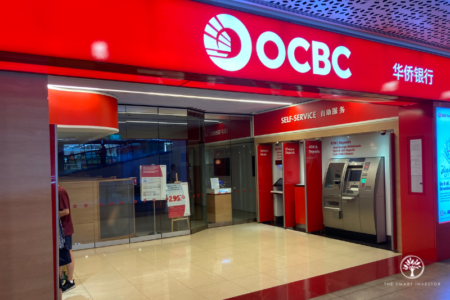Prime Minister Lee Hsien Loong has sounded a warning about a possible recession that could hit Singapore within the next two years.
This slowdown could come about as a result of the culmination of several events such as high inflation, a sharp rise in interest rates, the Russia-Ukraine war, supply chain bottlenecks and the tension between China and the US.
It’s understandable if you feel nervous about how your investment portfolio will perform should a recession hit.
But instead of worrying, here are three steps you can take to better prepare yourself for a possible downturn.
Own solid, stable blue-chip stocks
Blue-chip stocks have a reputation for being solid businesses that can withstand downturns.
Many also have a track record of bouncing back after facing tough economic conditions, thereby providing investors with peace of mind.
Take Singapore’s largest bank, DBS Group (SGX: D05), as an example.
The lender has remained resilient through the pandemic and reported a record-high net profit of S$6.8 billion for its fiscal 2021.
Its fiscal 2022 first quarter (1Q2022) results have carried on that momentum as net interest margin rebounded and loan growth remains healthy.
Another solid performer has been Singapore Exchange Limited (SGX: S68), or SGX.
Singapore’s sole bourse operator not only pays dividends quarterly but has also done so since 2001.
The multi-asset exchange has not only braved the recent 2020 recession but is also in a sweet spot to grow further with its broad suite of stocks, derivatives and portfolio management tools.
By parking some money in such dependable blue-chip stocks, you can be certain that they can get through a recession relatively unscathed.
Buy dividend-paying companies or REITs
The next area to focus on is stocks that pay out consistent dividends.
Such stocks include companies with a long history of dividend payments along with strong free cash flow generation.
They may also include REITs, an asset class that needs to pay out at least 90% of its earnings to enjoy tax benefits.
Conglomerates such as Haw Par Corporation Limited (SGX: H02) and Boustead Singapore Limited (SGX: F9D) have a long history of dividend payments that stretch more than a decade.
For REITs, you can select those that have an outstanding track record of distribution per unit (DPU) increases.
Parkway Life REIT (SGX: C2PU) and Mapletree Industrial Trust (SGX: ME8U), or MIT, come to mind.
Parkway Life REIT has increased its core DPU every single year since 2007 while MIT has increased its DPU without fail since 2012.
It’s also a good idea to stick with REITs that have strong sponsors.
Not only will these sponsors help to extend a financial lifeline should the REIT fall on hard times, but they also have a ready pipeline of assets to inject into the REIT, providing it with ample acquisition opportunities to grow its DPU.
Some examples of such REITs include CapitaLand Integrated Commercial Trust (SGX: C38U) and Frasers Centrepoint Trust (SGX: J69U).
Review your portfolio
Finally, you should continually review your investment portfolio for lemons.
These could include businesses that failed to adapt or innovate and fell by the wayside or companies that could not withstand competitive threats and lost market share.
Such stocks are already on a weak footing during normal times, and will suffer an even worse fate should economic conditions deteriorate.
It’s also advisable to trim your portfolio of cyclical stocks that may do well during an upturn but suffer debilitating losses during downturns.
Get Smart: Singapore has survived multiple recessions before
It’s important to remember that Singapore has gone through multiple recessions before.
The first recession occurred in 1985 and was Singapore’s first post-independence recession.
Subsequently, Singapore went through recessions in 1997-1998 (Asian Financial Crisis), 2008 (Global Financial Crisis) and more recently, in 2020, due to the effects of the COVID-19 pandemic.
Through all these recessions, the economy has always bounced back subsequently as the government spared no resources in pumping money and assistance to affected sectors.
By preparing yourself for a possible recession, your portfolio can better withstand sudden shocks and you can also enjoy a better total return over the long term.
Is it a good time to buy into Singapore REITs? If you’ve thought about it, then our latest REITs guide will be an essential read. This exclusive pdf report shows you why REITs are still excellent assets, what sectors to look out for and how to find good REITs today. The info inside can help you build a solid retirement portfolio. Click here to download it for FREE.
Follow us on Facebook and Telegram for the latest investing news and analyses!
Disclaimer: Royston Yang owns shares of DBS Group, Singapore Exchange Limited, Boustead Singapore Limited and Mapletree Industrial Trust.




